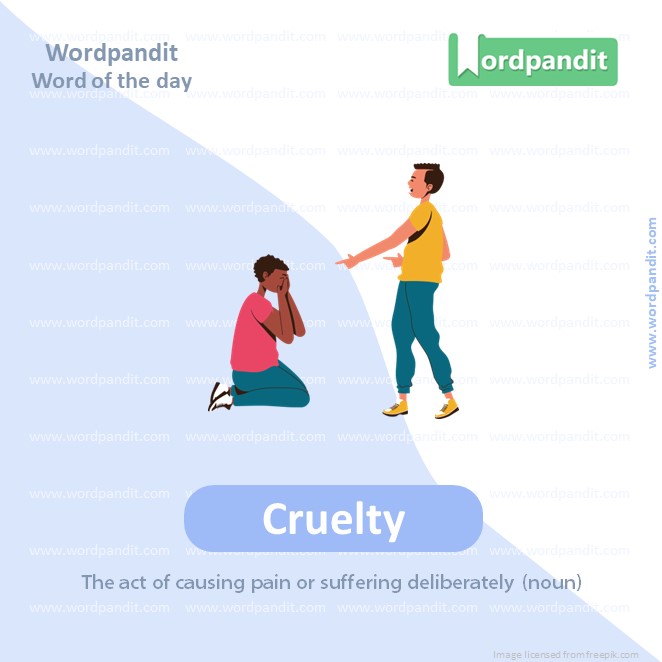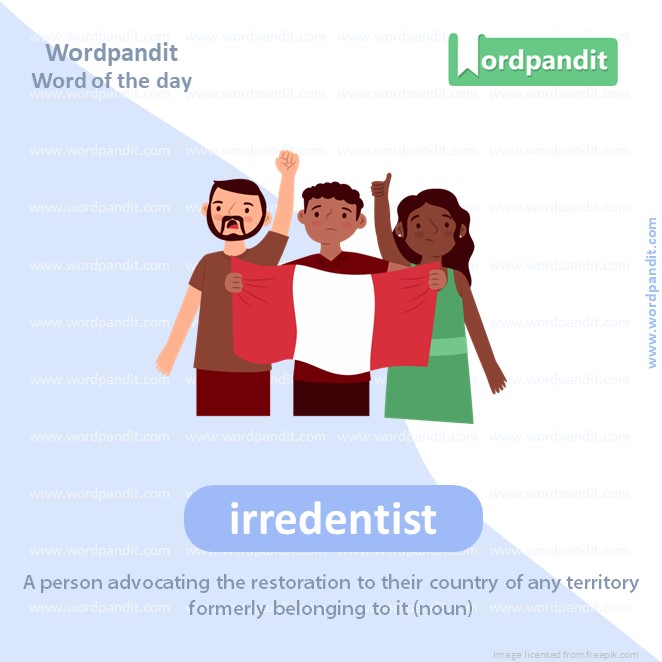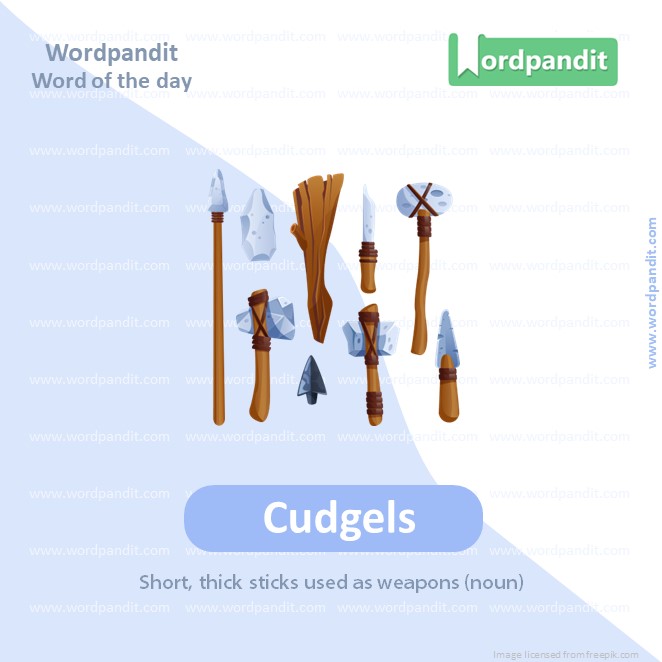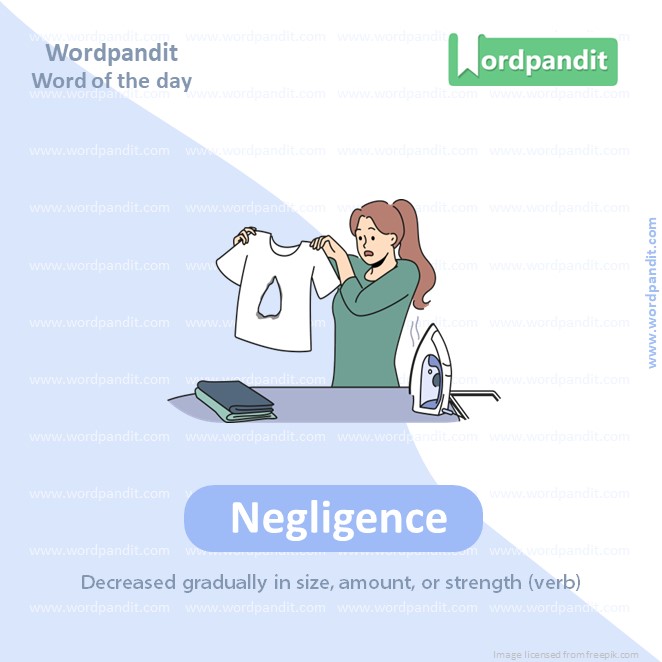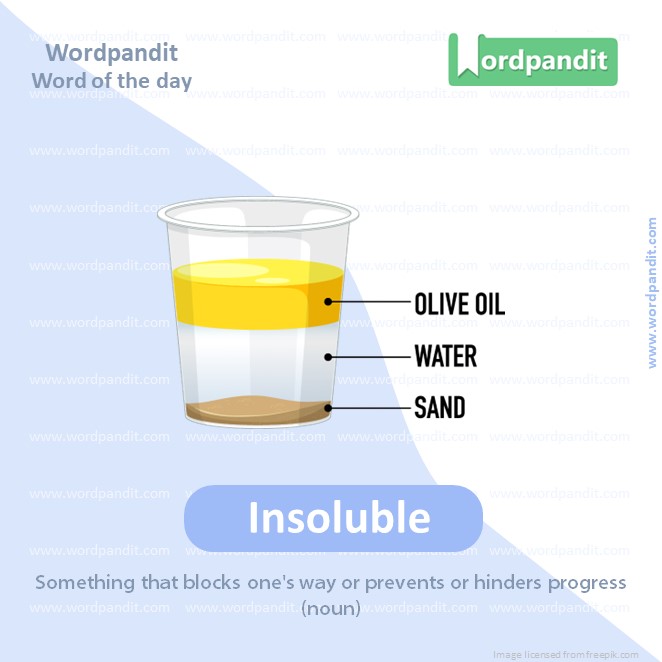Daily Vocabulary from International Newspapers and Publications
Expand Your Vocabulary with Wordpandit’s Global Vocabulary Hub
At Wordpandit, we are committed to helping you develop a truly global vocabulary by drawing from some of the most respected international publications. This section is designed to keep you ahead of the curve by introducing you to words that define global conversations and trends.
The Power of Global Sources
To help you think and communicate on a global scale, we curate vocabulary from renowned international sources, such as:
- The New York Times
- The Washington Post
- BBC
- The Guardian
- The Economist
- Scientific American
- Psychology Today
- And many more...
Stay Global, Stay Competitive
Our daily updates from international publications ensure you are consistently exposed to new words that reflect global news and developments, making sure your vocabulary is not only current but also globally relevant.
Enhance Your Global Perspective
Whether you’re preparing for international exams, aiming to excel in global business communication, or want to enhance your language skills for personal growth, Wordpandit offers the resources you need to thrive in a global context.
Effective Learning, Global Reach
Our learning methodology combines global examples, memory aids, and interactive activities, allowing you to internalize new words effectively and apply them in real-world scenarios.
Begin Your Global Vocabulary Journey Now!
Why Choose Wordpandit?
Practical Learning: Focus on words you'll actually encounter in real-world reading, enhancing your comprehension and communication skills.
Diverse Content: From current affairs to scientific breakthroughs, our varied sources expose you to vocabulary across multiple domains.
Effortless Integration: Make Wordpandit a part of your daily routine. Just a few minutes each day can significantly boost your lexicon over time.
Your Path to Vocabulary Mastery
- Visit our Daily Vocabulary section regularly
- Explore new words and their usage in context
- Practice incorporating these words into your own writing and speech
- Track your progress as your vocabulary expands
Start Your Journey Today
Embark on your vocabulary enhancement journey with Wordpandit. By consistently engaging with our daily posts, you'll build a robust vocabulary that serves you well in academic, professional, and personal contexts.
Remember, a word a day keeps linguistic limitations at bay. Make Wordpandit your daily companion in the quest for vocabulary excellence!
WORD-1: Cruelty
Context:
"As bad as the cruelty is the cynicism. The changing borders and independence movements of the postwar era produced millions of refugees." - New York Times
Explanatory Paragraph:
“Cruelty” refers to behavior that causes pain or suffering to others, often done intentionally and without compassion. It is a word that captures the darker side of human actions — whether it’s physical harm, emotional abuse, or neglect. When someone is cruel, they not only hurt others but often feel no remorse about doing so. The term is used in both personal and societal contexts to highlight injustice and inhumanity.
Meaning: Deliberate infliction of pain and suffering; merciless behavior (Noun)
Pronunciation: KROO-uhl-tee
Difficulty Level: ⭐⭐ Beginner
Etymology: From Old French *crualté*, derived from Latin *crudelitas*, meaning "inhumanity or harshness."
Prashant Sir's Notes:
Cruelty is more than just physical harm — it often manifests in emotional and psychological ways. Understanding this word helps unpack human behavior in literature, politics, and history. It’s often paired with words like “violence,” “indifference,” or “brutality.”
Synonyms & Antonyms:
Synonyms: brutality, savagery, harshness, inhumanity, malice
Antonyms: kindness, compassion, mercy, gentleness, empathy
Usage Examples:
- The cruelty inflicted on prisoners during the regime shocked the world.
- Her words were filled with a quiet cruelty that hurt more than yelling ever could.
- Animal cruelty is a punishable offense in many countries now.
- The novel explores the cruelty of war and the toll it takes on innocent lives.
Cultural Reference:
"The greatest cruelty is our casual blindness to the suffering of others." - A paraphrased reflection on themes from Viktor Frankl’s *Man’s Search for Meaning*
Think About It:
Why do you think cruelty often goes unnoticed or is excused in everyday situations?
Quick Activity:
Write down three forms of cruelty you’ve seen in fiction, history, or news, and one way each could have been replaced with kindness.
Memory Tip:
Think of “cruel” as “crush + fuel” — cruelty is like fueling someone’s suffering by crushing their spirit or body.
Real-World Application:
The term “cruelty” is widely used in human rights discussions, legal frameworks (e.g., anti-cruelty laws), and activism against domestic abuse, animal testing, or systemic injustice. Understanding this word can sharpen your awareness in global and social issues.
WORD-2: Irredentist
Context:
"Israel and preserving the irredentist fantasy that someday their descendants will exercise what they believe is their 'right of return,' effectively through the elimination of the Jewish state." - New York Times
Explanatory Paragraph:
The word "irredentist" refers to someone who advocates for the restoration of territory that they believe historically or culturally belongs to their nation but is currently under the control of another. This often involves strong nationalistic beliefs and can be rooted in historical grievances. The term is most commonly used in political or geopolitical discussions where groups seek to reclaim land based on past ownership, ethnic connection, or national pride.
Meaning: A person advocating the restoration to their country of any territory formerly belonging to it. (Noun)
Pronunciation: ih-ruh-DEN-tist
Difficulty Level: :star::star::star::star: Advanced
Etymology: Derived from Italian *irredentista*, from *Italia irredenta* meaning "unredeemed Italy," referring to territories historically claimed by Italy in the 19th century.
Prashant Sir's Notes:
This is a powerful political term often used in contexts of nationalism and territorial disputes. Knowing this term helps you understand conflicts where identity and land are deeply intertwined. It’s especially useful in history, political science, and current affairs discussions.
Synonyms & Antonyms:
Synonyms: nationalist, expansionist, revanchist
Antonyms: separatist, pacifist, isolationist
Usage Examples:
- The political party gained popularity with its irredentist rhetoric about reclaiming lost provinces.
- Irredentist claims have long fueled tensions between the neighboring countries.
- He was labeled an irredentist for his outspoken support of annexing historical homelands.
- The irredentist movement drew support from those who still felt emotionally connected to the lost territory.
Cultural Reference:
"Irredentism played a key role in the unification of Italy during the 19th century, as many Italians sought to reclaim territories that were under foreign control." - History Channel Documentary
Think About It:
Can irredentist ambitions ever be fulfilled without triggering conflict, or are they inherently a source of tension?
Quick Activity:
List three modern-day territorial disputes. Research if any of the parties involved are considered irredentist. Briefly explain why.
Memory Tip:
Think of “irredentist” as someone who can't "redeem" (or get back) their "land" and keeps pushing for it. *IRRE + DENTIST* — imagine a dentist trying to pull land back like a stubborn tooth!
Real-World Application:
The word "irredentist" is useful in political discussions, international relations, and historical debates where the legitimacy of territorial claims is questioned. It helps articulate the motivations behind certain national movements and foreign policy decisions.
WORD-3: Cudgels
Context:
"They should not be cudgels in a never-ending struggle, subsidized from one aggrieved generation to the next by international largess." - New York Times
Explanatory Paragraph:
The word “cudgels” refers literally to short, thick sticks used as weapons. Figuratively, it describes tools or arguments used forcefully to dominate or pressure others. In writing and speech, it’s often used metaphorically to criticize the use of ideas, history, or grievances as blunt instruments to continue conflict or exert influence. It's a powerful image — turning something that could heal or educate into a weapon.
Meaning: Short heavy sticks used as weapons; metaphorically, harsh or forceful tools of conflict or persuasion (Noun – plural)
Pronunciation: KUH-juhlz
Difficulty Level: ⭐⭐⭐ Intermediate
Etymology: From Middle English *cuggel*, of uncertain origin, possibly imitative of a hitting sound or from Germanic roots.
Prashant Sir's Notes:
Don’t think just of medieval weapons — think of how “cudgels” is used metaphorically. When ideologies, historical wounds, or even legal systems are used to batter opponents instead of resolving problems, the word fits. It’s a word packed with both physical and symbolic force.
Synonyms & Antonyms:
Synonyms: bludgeons, clubs, weapons, tools (figurative), battering instruments
Antonyms: olive branches, peace offerings, conciliatory tools
Usage Examples:
- The mob carried cudgels and torches as they stormed the gates.
- Historical grievances should not be used as cudgels to justify present-day hatred.
- He took up the cudgels for his community, defending their rights fiercely in court.
- Online debates often turn into verbal cudgels rather than meaningful discussion.
Cultural Reference:
"Take up the cudgels" is a common idiom meaning to defend or fight for a cause. It's been used in political speeches and editorial writing throughout the 20th century.
Think About It:
Can language or ideology become a cudgel? How do we recognize when ideas are used to harm rather than heal?
Quick Activity:
Write two short sentences: one using “cudgels” literally, and one using it metaphorically. Compare how the tone changes.
Memory Tip:
Think of “cudgel” as “club-gel” — a club so solid it gels into your memory as a weapon, whether physical or verbal!
Real-World Application:
In journalism, international relations, and even activism, the word “cudgel” helps describe when emotional, legal, or historical arguments are used forcefully rather than constructively. It’s a sharp word to critique aggressive rhetoric.
WORD-4: Negligence
Context:
"Gross negligence or quiet complicity — they need to resign now." - New York Times
Explanatory Paragraph:
“Negligence” refers to a failure to take proper care in doing something, especially when that failure causes harm or risk. It is commonly used in legal, medical, and organizational contexts where someone is expected to act responsibly but doesn’t. Negligence doesn’t always mean someone meant to do harm — it often reflects carelessness, indifference, or failure to fulfill a duty.
Meaning: Failure to take proper care or to fulfill one’s responsibilities, resulting in harm or risk (Noun)
Pronunciation: NEH-glih-jens
Difficulty Level: ⭐⭐ Beginner
Etymology: From Latin *negligentia*, meaning “carelessness” or “neglect,” from *neglegere* ("to disregard").
Prashant Sir's Notes:
This word often appears in news related to scandals, accidents, or legal cases. It’s useful when analyzing responsibility or accountability — especially when harm results from inaction or carelessness, not malice. Watch for modifiers like “gross negligence” or “criminal negligence.”
Synonyms & Antonyms:
Synonyms: carelessness, irresponsibility, inattention, oversight, disregard
Antonyms: diligence, attentiveness, responsibility, conscientiousness, carefulness
Usage Examples:
- The doctor was sued for negligence after failing to diagnose the condition in time.
- Negligence in maintaining the building led to the tragic collapse.
- The manager’s negligence allowed the data breach to go unnoticed for weeks.
- Even unintentional negligence can have serious consequences in high-risk jobs.
Cultural Reference:
The term “negligence” is a foundational concept in tort law and frequently appears in high-profile legal dramas, such as in the movie *Erin Brockovich*, where a corporation’s negligence harms an entire community.
Think About It:
Is negligence always accidental, or can it sometimes reflect a deeper moral failure?
Quick Activity:
List three everyday situations (e.g., driving, parenting, managing money) where negligence could cause harm. What simple actions could prevent it?
Memory Tip:
Break it into “neglect + sense” — if you neglect your sense of responsibility, you're showing negligence!
Real-World Application:
Understanding “negligence” is crucial in law, healthcare, education, and management — any place where duty of care matters. It helps us judge when someone failed to meet basic standards, even without malicious intent.
WORD-5: Insoluble
Context:
"The Israeli-Palestinian conflict should not be insoluble." - New York Times
Explanatory Paragraph:
“Insoluble” describes something that cannot be solved, fixed, or explained — often a problem, conflict, or question that defies resolution. It suggests a degree of complexity, stubbornness, or deadlock that makes the issue seem impossible to address. The word is also used in chemistry to describe substances that can’t dissolve in a particular liquid, but in political or philosophical contexts, it points to seemingly unresolvable challenges.
Meaning: Impossible to solve or overcome; not able to be dissolved (Adjective)
Pronunciation: in-SOL-yuh-buhl
Difficulty Level: ⭐⭐⭐ Intermediate
Etymology: From Latin *in-* ("not") + *solubilis* ("able to be loosened or solved") — literally “not solvable.”
Prashant Sir's Notes:
When a conflict or question is described as "insoluble," it suggests frustration and complexity. The word often appears in diplomatic, scientific, or philosophical debates. It’s useful to think about whether something is truly insoluble or just very hard to solve — language shapes our expectations.
Synonyms & Antonyms:
Synonyms: unsolvable, intractable, unresolvable, hopeless, baffling
Antonyms: solvable, manageable, resolvable, fixable
Usage Examples:
- The scientist faced an insoluble equation that defied all known methods of calculation.
- They treated the issue of climate change as insoluble, rather than working toward solutions.
- To many, the decades-long civil war seemed insoluble, but peace talks slowly shifted perspectives.
- Some philosophical questions are considered insoluble — not because they're unimportant, but because they resist definitive answers.
Cultural Reference:
Albert Einstein once remarked that "the significant problems we face cannot be solved at the same level of thinking we were at when we created them," implying that what seems insoluble might become solvable through new perspectives.
Think About It:
Do you believe any human conflict is truly insoluble, or is it simply that we haven’t found the right approach yet?
Quick Activity:
List three global or personal problems you consider insoluble. Then write one idea that could begin to shift the way we look at each problem.
Memory Tip:
Think: “In-soluble = Not-solvable.” Just like oil is insoluble in water, some issues resist mixing with solutions — but that doesn’t mean we stop trying.
Real-World Application:
Understanding the word “insoluble” helps in debates, conflict resolution, international affairs, and philosophy — anywhere we explore difficult challenges. It reminds us to question whether something is truly beyond resolution or just in need of a new mindset.



